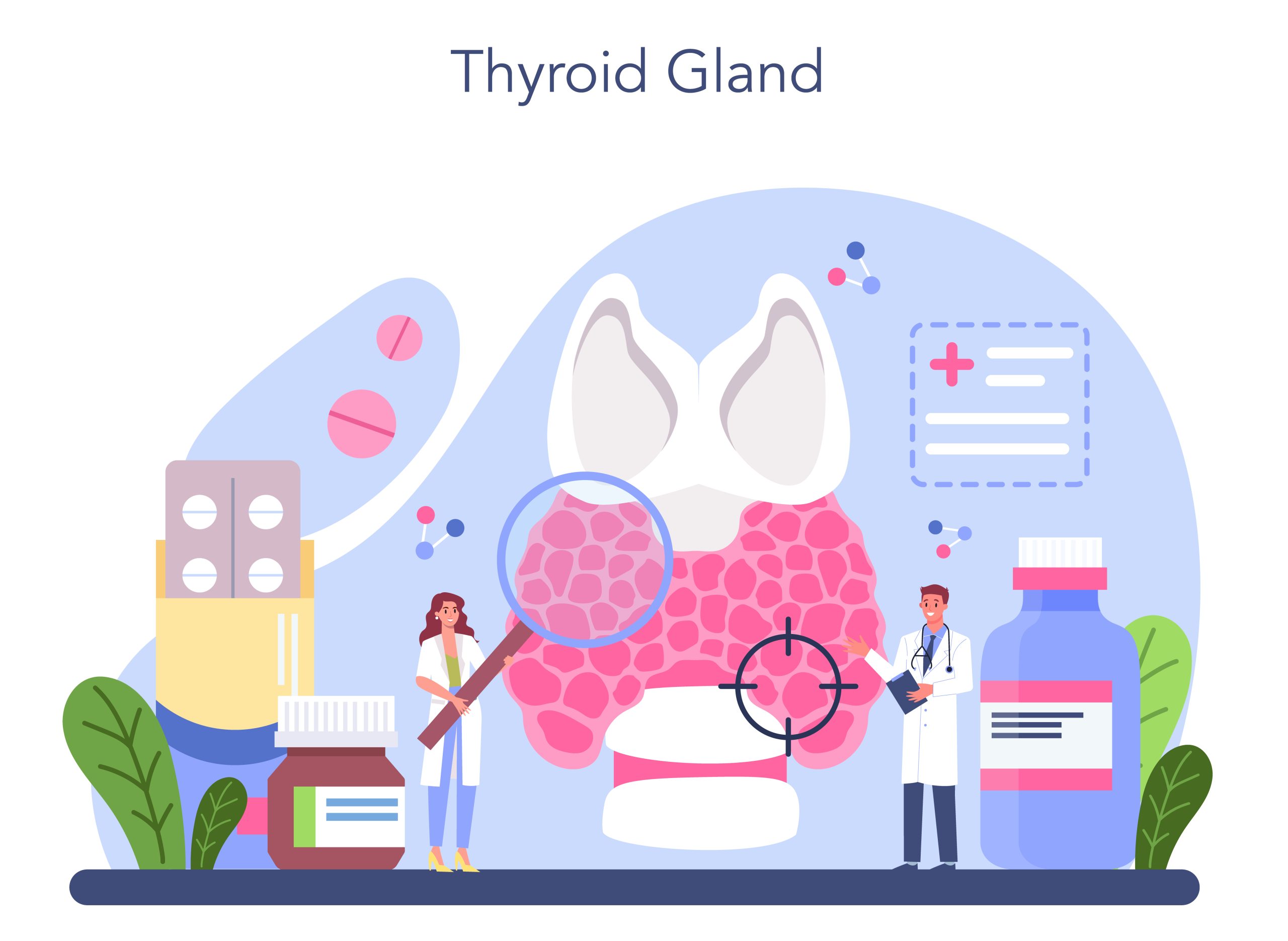
Hypothyroidism happens when the thyroid gland doesn’t make enough thyroid hormone. This condition is called “underactive thyroid.” Hypothyroidism may not cause noticeable symptoms in its early stages. Over time, hypothyroidism that isn’t treated can lead to other health problems, such as high cholesterol and heart problems.
Blood tests are used to diagnose hypothyroidism. Treatment with thyroid hormone medicine is usually simple, safe, and effective once you and your healthcare provider find the right dosage for you.
Symptoms
Thyroid gland
The symptoms of hypothyroidism depend on the severity of the condition. Problems tend to develop slowly, often over several years.
At first, you may barely notice the symptoms of hypothyroidism, such as fatigue and weight gain. Or you may think they are just part of getting older. But as your metabolism continues to slow, you may develop more-obvious problems.
Hypothyroidism symptoms may include:
- Tiredness.
- More sensitivity to cold.
- Constipation.
- Dry skin.
- Weight gain.
- Puffy face.
- Hoarse voice.
- Coarse hair and skin.
- Muscle weakness.
- Muscle aches, tenderness, and stiffness.
- Menstrual cycles that are heavier than usual or irregular.
- Thinning hair.
- Slowed heart rate, also called bradycardia.
- Depression.
- Memory problems.
When to see a doctor
See your healthcare provider if you’re feeling tired for no reason or if you have other symptoms of hypothyroidism.
If you’re taking thyroid hormone medicine for hypothyroidism, follow your healthcare provider’s advice on how often you need medical appointments. At first, you may need regular appointments to make sure you’re receiving the right dose of medicine. Over time, you may need checkups so that your healthcare provider can monitor your condition and medicine.
Overview
Hypothyroidism happens when the thyroid gland doesn’t make enough thyroid hormone. This condition is also called “underactive thyroid.” Hypothyroidism may not cause noticeable symptoms in its early stages. Over time, hypothyroidism that isn’t treated can lead to other health problems, such as high cholesterol and heart problems.
Blood tests are used to diagnose hypothyroidism. Treatment with thyroid hormone medicine usually is simple, safe, and effective once you and your healthcare provider find the right dosage for you.
Symptoms
Thyroid gland
The symptoms of hypothyroidism depend on the severity of the condition. Problems tend to develop slowly, often over several years.
At first, you may barely notice the symptoms of hypothyroidism, such as fatigue and weight gain. Or you may think they are just part of getting older. But as your metabolism continues to slow, you may develop more-obvious problems.
Hypothyroidism symptoms may include:
- Tiredness.
- More sensitivity to cold.
- Constipation.
- Dry skin.
- Weight gain.
- Puffy face.
- Hoarse voice.
- Coarse hair and skin.
- Muscle weakness.
- Muscle aches, tenderness, and stiffness.
- Menstrual cycles that are heavier than usual or irregular.
- Thinning hair.
- Slowed heart rate, also called bradycardia.
- Depression.
- Memory problems.
When to see a doctor
See your healthcare provider if you’re feeling tired for no reason or if you have other symptoms of hypothyroidism.
If you’re taking thyroid hormone medicine for hypothyroidism, follow your healthcare provider’s advice on how often you need medical appointments. At first, you may need regular appointments to make sure you’re receiving the right dose of medicine. Over time, you may need checkups so your healthcare provider can monitor your condition and medicine.
For more such articles, visit https://blog.phleboindia.com/
Refs-
https://www.webmd.com/women/understanding-thyroid-problems-symptoms
Stay updated with your health, and book a lab test with PhleboIndia today.
Download our app here:
Android app – http://bit.ly/3XRsXzt
IOS app – https://apple.co/3wqJf6I

